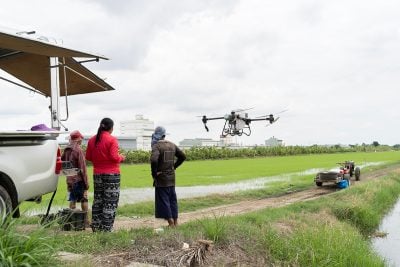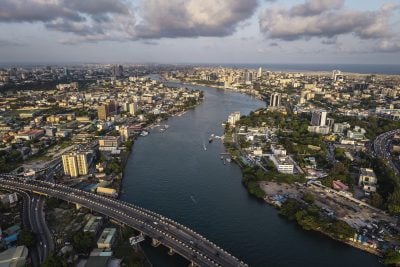Zimbabwe’s opposition Citizens’ Coalition for Change (CCC) is pushing for a re-run of last week’s elections after African and international observers questioned the credibility of the polls that led to President Emmerson Mnangagwa’s victory.
In a series of statements on X (formerly Twitter), the CCC, led by presidential candidate Nelson Chamisa, called on regional observers critical of the process – including the Southern African Development Community (SADC) and the African Union (AU) – to enable fresh elections as soon as possible.
“The way forward is clear: we must hold a fresh election under the supervision of regional, continental, and international bodies. We refuse to let the hard-earned victory of the people be undermined by the Zimbabwe Election Commission (@ZECzim) and those behind it,” the party said.
The CCC said that regional bodies should “facilitate, mediate, scaffold and guarantee a process that would lead to our return to legitimacy in the shortest period of time.”
The Zimbabwe Election Commission declared Mnangagwa winner with roughly 53% of the vote compared to 44% for Chamisa, who labelled the results a “blatant and gigantic fraud”.
African observers lead criticism
In a critical report, the SADC observer mission, led by former Zambian vice-president Nevers Mumba, said that “some aspects of the Harmonised Elections fell short of the requirements of the Constitution of Zimbabwe, the Electoral Act, and the SADC Principles and Guidelines Governing Democratic Elections (2021).”
The SADC mission comprised 68 observers, 50 of whom were deployed to the 10 provinces of Zimbabwe. The mission noted that just 64% of the voting stations observed opened on time, 36% did not open on time, and some opened 12 hours after the stipulated time. It pointed to restrictive access to the voters’ roll, limitations on freedom of expression and assembly, and highlighted concerns about voter intimidation.
The African Union, which ran an election observer mission alongside the Common Market for Eastern and Southern Africa (COMESA), was similarly critical. It pointed to the late opening of polling stations, the difficulty of registering to vote in certain areas, the high cost of candidate registration and constituency delimitation controversies.
It also highlighted opposition concerns about the “the selective and disproportionate application of the Maintenance of Peace and Order Act by the Zimbabwe Republic Police to limit large-scale campaign rallies by the opposition” and said it was “deeply concerned about the arrest of civil society actors and the confiscation of computers and documents from the Election Resource Centre and Zimbabwe Election Support Network.”
Observers from outside the continent were even more outspoken. European Union high representative Josep Borrell said the organisation “deplores the extensive and sustained disinformation and defamation campaign waged against the EU EOM and other international observer organisations, the lack of access to key electoral bodies as well as the unjustified arrests of citizen observers.” Mission chief Fabio Massimo Castaldo said that the elections had been conducted in a climate of fear.
US Department of State spokesman Matthew Miller echoed those concerns in a statement.
“The United States notes in particular the systemic bias against political opposition during the pre-election period and reports from respected civil society groups that ZEC officials pressured election observers to sign altered polling station result forms. We call on the ZEC to make the disaggregated polling station results publicly available to increase confidence in the result tabulation process… We also strongly condemn the intimidation and disruption of lawful election observers throughout the electoral period.”
Congratulations complicate CCC efforts
However, regional powerhouse South Africa has already moved to affirm Mnangagwa’s victory, with President Cyril Ramaphosa tweeting his congratulations to Mnangagwa and wishing him well for the upcoming term. Separately, the president said that he had “taken note of the preliminary pronouncements by … the African Union (AU) and the South African Development Community (SADC) … Observer Missions” and urged all parties to work together.
Stephen Chan, professor at the department of politics and international studies at the School of Oriental and African Studies in London, who was denied entry to Zimbabwe ahead of the polls, said that international messages of congratulations from Ramaphosa, Russia’s President Vladimir Putin and China’s President Xi Jinping will complicate the CCC’s efforts to demand a re-run.
“Slowly but surely Mnangagwa is gleaning congratulations from world leaders. Xi and Putin were expected. Ramaphosa now has also congratulated him on his new term as president. The CCC strategy to appeal to SADC leaders has met a roadblock on its first day.”
But Chan also said that the blunt observer criticism meant that the SADC faces difficulty in how it responds to the polls.
“We now enter a regional contradiction, where SADC observers decried the election but SADC leaders must find a way to cooperate with the continuing regime.”
Any re-run of the election would represent a significant loss of face to Zanu-PF, which has led the country since the first post-independence election in 1980. For 37 of those years Zimbabwe was ruled by Robert Mugabe, until his removal by long-time ally Mnangagwa in a 2017 military-backed coup.
While Mnangagwa initially pledged to pursue reforms in a bid to engage with multilateral lenders such as the IMF and rebuild Zimbabwe’s isolated economy, the early impetus and apparent mutual goodwill quickly dissipated.
Without fresh outside assistance, Zimbabwe’s economy, which is expected by the IMF to grow at just 2.5% per year, continues to suffer from the familiar impacts of high inflation and currency volatility.
Want to continue reading? Subscribe today.
You've read all your free articles for this month! Subscribe now to enjoy full access to our content.
Digital Monthly
£8.00 / month
Receive full unlimited access to our articles, opinions, podcasts and more.
Digital Yearly
£70.00 / year
Our best value offer - save £26 and gain access to all of our digital content for an entire year!

 Sign in with Google
Sign in with Google 



